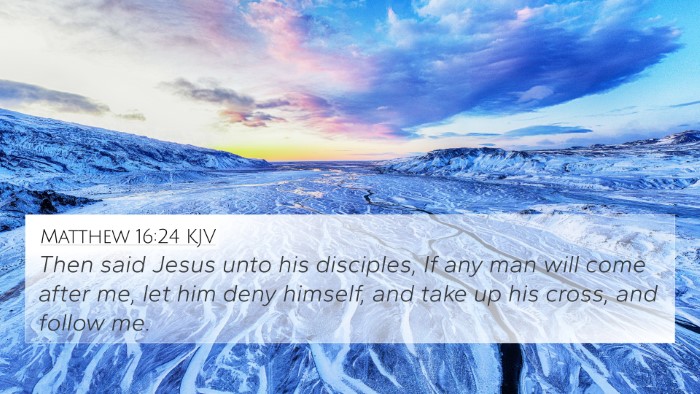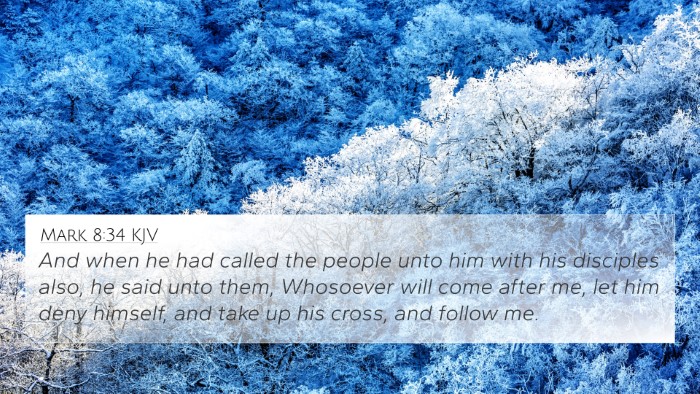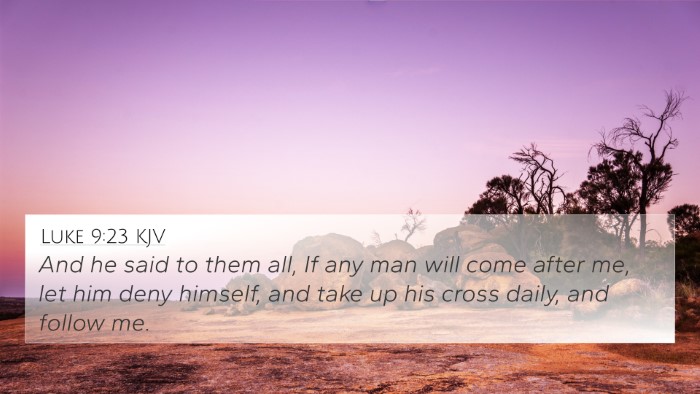Understanding 2 Kings 6:19
2 Kings 6:19 states: "And Elisha said to them, 'This is not the way, nor is this the city. Follow me, and I will bring you to the man whom you seek.' And he led them to Samaria." This verse occurs within a broader narrative where Elisha the prophet demonstrates God’s sovereignty and protection over His people.
Verse Context
This verse occurs during a time of tension between Israel and Syria, where the Syrian king seeks to capture Elisha due to his prophetic insights. Elisha’s actions here provide a powerful illustration of faith, divine guidance, and the servant nature of a prophet.
Commentary Insights
The insights from various public domain commentaries provide a deeper understanding of the nuances of this verse:
-
Matthew Henry:
Henry emphasizes the guidance provided by Elisha, indicating that he was not merely leading them physically but symbolically to the truth of divine revelation. Elisha’s leadership illustrates a faithful servanthood and highlights the necessity of following God’s plan even amidst confusion.
-
Albert Barnes:
Barnes notes that Elisha’s statement—"This is not the way"—serves as both a physical and spiritual direction. It reminds readers that the true path often lies hidden, awaiting divine revelation. Barnes also alludes to how this reflects on the larger theme of God redirecting His people away from peril.
-
Adam Clarke:
Clarke suggests this passage demonstrates a crucial aspect of Elisha's prophetic ministry—miraculously guiding others with God-given insight. Clarke highlights that leading the soldiers to Samaria symbolizes the uncovering of truth and misdirection, emphasizing that God’s plan often contrasts human understanding.
Thematic Connections
This verse resonates with several themes throughout the Bible. Below is a list of notable Bible cross-references that enhance understanding of 2 Kings 6:19:
- 1 Kings 19:16: This verse parallels the calling of Elisha and God's guidance in choosing prophets.
- Isaiah 30:21: It speaks of hearing a voice behind you, indicating divine direction which relates to Elisha guiding the Syrians.
- John 14:6: Jesus as the Way resonates with Elisha's correction of the way, showing the connectedness of biblical truth.
- Acts 9:6: Saul’s encounter with Christ emphasizes guidance similar to Elisha’s role in directing the lost Syrian soldiers.
- Proverbs 3:5-6: Trusting in the Lord for direction is a strong thematic tie, reinforcing the notion of divine leading.
- Psalms 119:105: God’s word as a lamp symbolizes guidance akin to Elisha's directive to the wayward soldiers.
- Isaiah 42:16: God’s promise to lead the blind resonates with Elisha's role in providing sight to those in spiritual darkness.
- 1 Corinthians 1:27: God often uses the foolish things to confound the wise, reflecting Elisha’s strategy in leading his enemies.
- Hebrews 11:32-34: These verses provide examples of faith through various leaders, showcasing the continued theme of divine guidance.
- Romans 8:31: If God is for us, who can be against us, reinforcing the theme of divine protection that Elisha embodies.
Conclusion
In conclusion, 2 Kings 6:19 elegantly illustrates the crucial role of divine guidance in times of uncertainty. Through the combined insights of commentaries and the thematic links with other scriptures, one can appreciate the interconnectedness of God’s message throughout the Bible. This verse highlights the importance of seeking and following God’s direction in our lives and stands as a testament to the ongoing relevance of prophetic guidance.
Using Bible Cross-References
For those seeking further study, utilizing a bible concordance can significantly enhance understanding. Tools for bible cross-referencing help in identifying connections between Bible verses, allowing deeper insight into the thematic Bible verse connections present in scripture. Engaging in cross-referencing Bible study methods will enable scholars and lay readers alike to enhance their biblical literacy and strengthen their faith.







